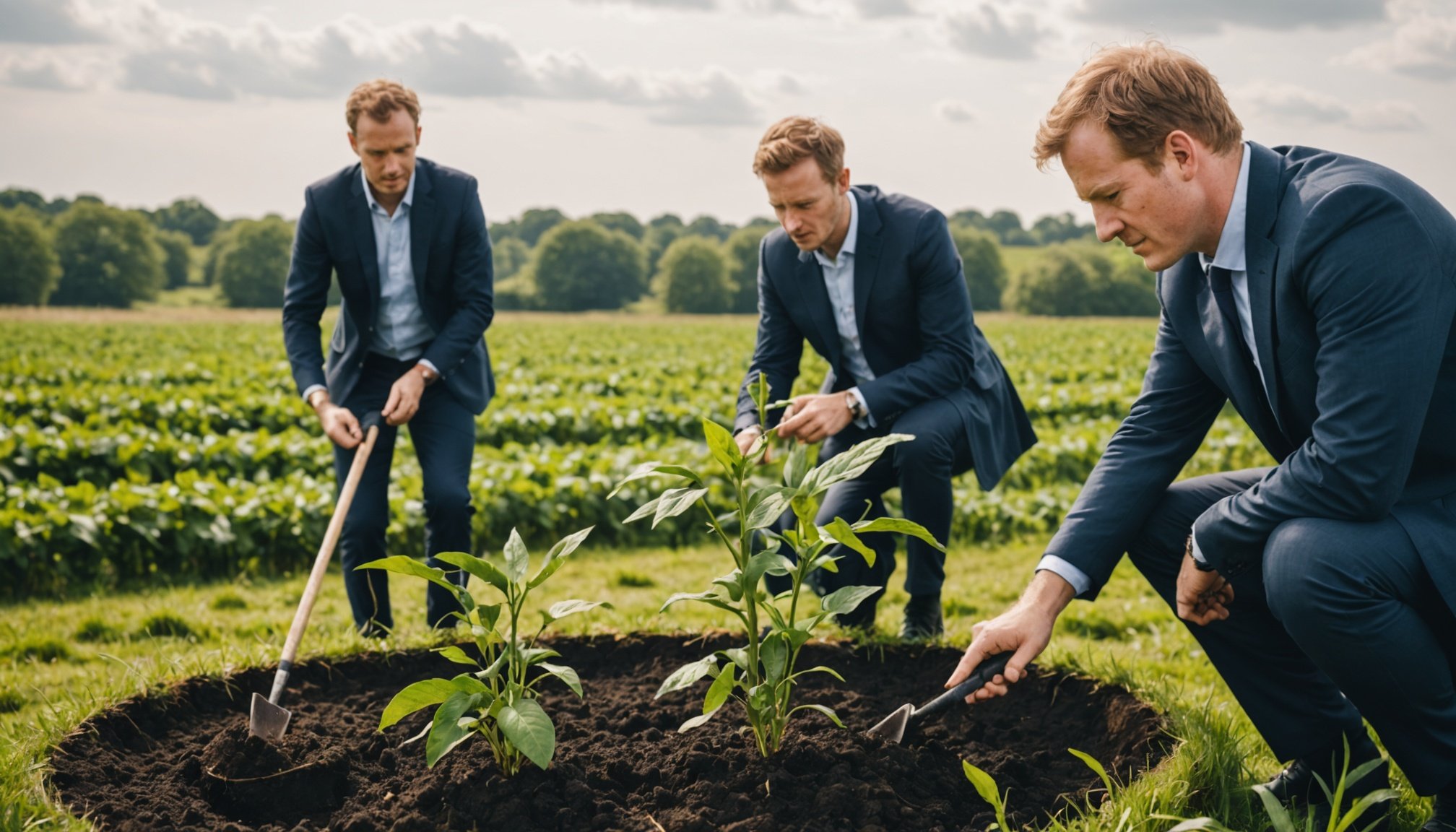The Importance of Sustainable Practices for UK Businesses
In today’s business landscape, sustainable business practices are increasingly vital for organisations in the UK. Companies that embrace sustainability not only contribute positively to the environment but also enhance their business performance. Sustainability can significantly enhance a brand’s reputation, which in turn boosts customer loyalty. Modern consumers often prefer to align themselves with brands that demonstrate environmental responsibility, and businesses can leverage this trend to strengthen their market position.
A notable statistic that showcases the impact of sustainability on business performance is that companies prioritising sustainability have reported a 9% increase in revenue over five years. This substantial growth highlights the tangible benefits of investing in sustainability initiatives.
Additional reading : Exploring the cutting-edge innovations transforming uk retail over the next decade
Sustainable business practices can also serve as a differentiator in the competitive marketplace. As more companies embed these practices into their operations, those lagging behind risk losing their edge. For businesses in the UK, staying ahead in sustainability not only supports the UK economy but also ensures a robust future where both business and community can thrive. The integration of such practices proves advantageous not just environmentally but also economically and socially.
Benefits of Sustainability for Business Success
Incorporating sustainable practices into business operations can significantly enhance financial benefits. UK businesses that adopt environmentally-friendly policies often see marked improvements in profitability. For instance, companies prioritising sustainability enjoy reduced operational costs through energy efficiency and waste reduction, directly boosting their bottom line. Moreover, these sustainable endeavours can lead to increased profitability, as highlighted by a 9% revenue increase reported by some firms over a five-year span.
Also read : How can uk companies strengthen their cybersecurity defenses? essential strategies revealed
One compelling aspect of sustainable practices is the competitive advantage they offer. By adopting green initiatives, businesses differentiate themselves from competitors in a crowded marketplace. This is vital in a time when consumers are becoming increasingly eco-conscious and selective about their purchases. Consequently, sustainability not only attracts customer loyalty but also draws in new clientele who value environmental responsibility.
Several UK businesses serve as exemplars of growth through sustainability. Companies like Unilever and Marks & Spencer have reported positive outcomes from their green strategies, reinforcing the tangible benefits of these practices. Emphasizing sustainability ensures resilience and growth in novel markets, creating long-term business success while fostering a positive impact on the planet.
Strategies for Implementing Sustainable Practices
Sustainable business practices offer substantial advantages, yet integrating them can be intricate. Businesses must first identify priority sustainability strategies that align with their mission. This involves assessing areas like energy consumption and material usage. Implementing green initiatives requires not just a top-down approach but the involvement of every employee.
Integrating Sustainability into Business Operations
One effective method is enhancing business operations through environmental audits and setting goals for resource efficiency. Companies can adopt renewable energy solutions, like solar panels, to reduce carbon footprints and operational costs. Such efforts not only contribute to environmental goals but also offer financial benefits.
Employee Engagement in Sustainability Efforts
Employee involvement is critical for success. Training programs should educate staff on sustainability’s importance and how their roles contribute. Empowering employees with ownership of initiatives fosters a culture of accountability and enthusiasm, which propels the company towards its goals.
Measuring the Impact of Sustainable Practices
Finally, metrics are indispensable for evaluating these practices. Tools should measure energy savings, waste reduction, and even employee participation rates. Regular reporting ensures strategies remain effective and impactful. Reporting to stakeholders on these findings builds trust and demonstrates commitment to green initiatives.
Challenges in Adopting Sustainable Practices
Adopting sustainable practices in the UK business sector presents a host of challenges. A significant barrier is the business challenges associated with transitioning to greener methods. Many companies face upfront costs and logistical hurdles when attempting to implement these changes. Yet, understanding how to surmount these obstacles is vital for long-term success.
Navigating UK regulations is another layer complicating these efforts. Businesses must carefully adhere to evolving environmental legislation, which can be daunting given the intricate compliance requirements. Staying informed and engaging with regulatory bodies can ease this process, thus contributing to smoother transitions.
Strategies for overcoming such barriers include fostering a culture open to change. Encouraging employee involvement and buy-in can effectively shift a company’s approach towards more sustainable operations. Businesses that facilitate open communication and regular training often find it easier to implement sustainable changes.
Finally, embracing a proactive mindset is crucial. By anticipating challenges and planning strategically, organisations can better adapt to barriers to sustainability. Despite initial resistance, perseverance in the face of obstacles often results in strengthened operational resilience and enhanced market positioning.
Environmental, Social, and Economic Advantages of Sustainability
Exploring sustainability through the lens of the triple bottom line focuses on the intricate balance between environmental, social, and economic impacts. This approach is integral in modern business strategies, promoting social responsibility while ensuring profitability. By adopting sustainable practices, companies can enhance their corporate image, increasing consumer trust and loyalty.
Examination of the Triple Bottom Line Approach
The triple bottom line integrates three essential metrics: environmental health, social equity, and economic viability. By actively pursuing this balanced strategy, businesses can achieve comprehensive growth, fostering a healthier planet and society while reaping financial rewards. Using sustainable resources and reducing waste are crucial elements of this approach.
Economic Benefits and Long-Term Resilience
Sustainable practices not only deliver immediate cost savings through energy efficiency but also bolster long-term economic impact. Companies embracing sustainability often report improved resilience, adapting more quickly to market changes and consumer demands. These practices create value, contributing to a stable UK economy over time.
Prioritising the triple bottom line results in a more responsible business model, bolstering corporate success and societal benefits. By addressing environmental, economic, and social aspects, businesses enhance their market position and continue thriving in an evolving global landscape.
Expert Insights on Future Trends in Sustainable Business
The future of sustainability hinges significantly on continual business innovation. Industry experts forecast a marked shift as technology increasingly embeds itself within sustainable strategies. Expect technologies like AI and IoT to revolutionize monitoring and optimization efforts, enhancing efficiency in resource utilization.
As businesses strive to remain relevant, they must interpret these expert opinions into actionable strategies. Leaders anticipate an upswing in eco-friendly products and services driven by both consumer demand and regulatory pressures. By embracing these insights, companies can stay ahead of evolving market expectations and regulatory frameworks.
Anticipating Future Trends
Investments in sustainable innovations, such as circular economies and eco-designs, are predicted to rise. These approaches not only mitigate environmental impact but also spur economic growth by maximizing the lifespan of resources. Informed by expert analysis, the integration of such models promises to bolster business performance.
The Role of Technology
Technology, a central pillar of future strategies, enables businesses to streamline business operations. From improving supply chain transparency to reducing carbon footprints, technological advancements are pivotal. Companies that leverage these tools effectively are poised to gain a competitive advantage, aligning profitability with environmental stewardship and capturing new opportunities in the sustainable marketplace.

